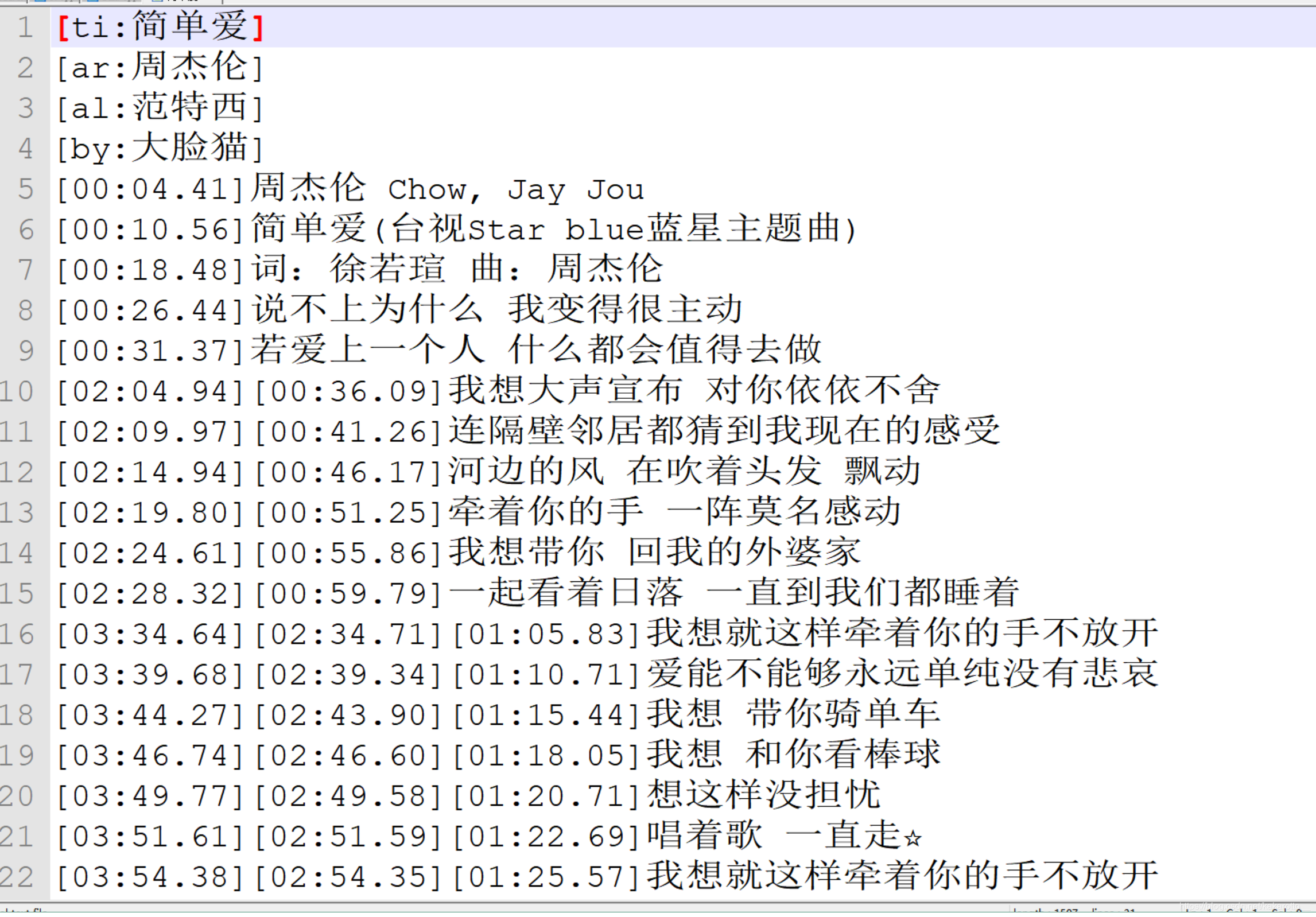字符串处理
atoi atol atof
atoi函数
- 头文件:
#include<stdlib.h>
- 函数原型:
int atoi(const char *str)
- 函数功能: 把参数 str 所指向的字符串转换为一个int整数
- 参数:str – 要转换为整数的字符串。
- 函数返回值:该函数返回转换后的长整数,如果没有执行有效的转换,则返回零。
atol函数
- 头文件:
#include<stdlib.h>
- 函数原型:
int long atol(const char *str)
- 函数功能: 把参数 str 所指向的字符串转换为long int
- 参数:str – 要转换为长整数的字符串。
- 函数返回值:该函数返回转换后的长整数,如果没有执行有效的转换,则返回零。
案例1:
1
2
3
4
5
6
7
8
9
10
11
12
13
14
15
16
17
18
| #include<stdio.h>
#include<stdlib.h>
int main(int argc,char *argv[]){
printf("%d\n",atoi("123"));
printf("%d\n",atoi("123abc"));
printf("%d\n",atoi("hello"));
printf("-------------------\n");
printf("%d\n",atol("123"));
printf("%d\n",atol("123abc"));
printf("%d\n",atol("hello"));
printf("-------------------\n");
printf("%f\n",atof("123.32"));
printf("%f\n",atof("123"));
printf("%f\n",atof("123abc"));
printf("%f\n",atof("hello"));
return 0;
}
|
运行结果:

案例2:自己实现一个atoi
1
2
3
4
5
6
7
8
9
10
11
12
13
14
15
16
17
18
19
20
21
| #include<stdio.h>
#include<stdlib.h>
int my_atoi(char *str){
int sum=0;
while(*str!='\0'){
if(!(*str>='0'&&*str<='9')){
return 0;
}
sum=sum*10+(*str-'0');
str++;
}
return sum;
}
int main(int argc,char *argv[]){
printf("%d\n",atoi("123"));
printf("%d\n",atoi("123abc"));
printf("%d\n",atoi("hello"));
return 0;
}
|
运行结果:

strtoc函数
- 头文件:
#include<string.h>
- 函数原型:
char *strtok(char *str, const char *delim)
- 函数参数:
- str – 要被切割的字符串。
- delim – 分割字符串中包含的所有字符。
- 返回值:该函数返回被分解的第一个子字符串,如果没有可检索的字符串,则返回一个空指针
NULL。
- 注意:不能切割字符串常量,因为他不能被修改
当strrok()在参数str的字符串中发现delim中包含的分割字符串时,则会将该字符串更改为'\0',当连续出现多个时只讲第一个替换为'\0';
在第一次调用时:strtok()必需要给参数str;在第二次到第n次调用时:将str的参数设置为NULL,每次调用成功则返回被分割出的片段的指针。
案例3:
1
2
3
4
5
6
7
8
9
10
11
12
13
14
15
16
17
18
19
20
21
22
23
24
25
26
27
| #include<stdio.h>
#include<string.h>
int main(int argc,char *argv[]){
char str[]="china:beijing:shanghai:wuhan";
char *arr[32]={NULL};
int i=0;
arr[i]=strtok(str,":");
while(arr[i] != NULL){
i++;
arr[i]=strtok(NULL,":");
}
int j=0;
while(arr[j]!=NULL){
printf("%s\n",arr[j]);
j++;
}
return 0;
}
|
运行结果:

案例3优化1:
1
2
3
4
5
6
7
8
9
10
11
12
13
14
15
16
17
18
19
20
21
22
23
24
| #include<stdio.h>
#include<string.h>
int main(int argc,char *argv[]){
char str[]="china:beijing:shanghai:wuhan";
char *arr[32]={str,NULL};
int i=0;
while(1){
arr[i]=strtok(arr[i],":");
if(arr[i] == NULL){
break;
}
i++;
}
int j=0;
while(arr[j]!=NULL){
printf("%s\n",arr[j]);
j++;
}
return 0;
}
|
运行结果:

案例3优化2:
1
2
3
4
5
6
7
8
9
10
11
12
13
14
15
16
17
18
19
20
21
| #include<stdio.h>
#include<string.h>
int main(int argc,char *argv[]){
char str[]="china:beijing:shanghai:wuhan";
char *arr[32]={str,NULL};
int i=0;
while(arr[i++]=strtok(arr[i],":"));
int j=0;
while(arr[j]!=NULL){
printf("%s\n",arr[j]);
j++;
}
return 0;
}
|
运行结果:

注意:
- 如果要以多个分割符 再delim里面加就行了
案例4:
1
2
3
4
5
6
7
8
9
10
11
12
13
14
15
16
17
18
19
20
| #include<stdio.h>
#include<string.h>
int main(int argc,char *argv[]){
char str[]="china::@@##beijing::::shanghai#@:@#@::wuhan";
char *arr[32]={str,NULL};
int i=0;
while(arr[i++]=strtok(arr[i],"::@#"));
int j=0;
while(arr[j]!=NULL){
printf("%s\n",arr[j]);
j++;
}
return 0;
}
|
运行结果:

sprintf组包
- printf向终端输出
- sprintf向字符串输出
- fprintf向文件输出

- 头文件:
#include<stdio.h>
- 函数原型:
int sprintf(char *str, const char *format, ...)
- 返回值:如果成功,则返回写入的字符总数,不包括字符串追加在字符串末尾的空字符。如果失败,则返回一个负数。
用法、参数、格式化输出等与printf基本相同,只是不是输出在终端而是在,字符串中而已
案例4:
1
2
3
4
5
6
7
8
9
10
| #include<stdio.h>
int main(int argc,char *argv[]){
char str[128]="";
int year=2020;
int mon=5;
int day=15;
sprintf(str,"%d年%d月%d日",year,mon,day);
printf("%s\n",str);
return 0;
}
|
运行结果:

案例5:
1
2
3
4
5
6
7
8
9
10
11
| #include<stdio.h>
int main(int argc,char *argv[]){
char str[128]="";
char name[]="小花";
int age=18;
char sex[]="女";
char addr[]="湖北省武汉市";
sprintf(str,"名字:%s \n性别:%s \n年龄:%d \n地址:%s",name,sex,age,addr);
printf("%s\n",str);
return 0;
}
|
运行结果:

特殊的用法:利用sprintf将数字转换成字符串
1
2
3
4
5
6
7
8
| #include<stdio.h>
int main(int argc,char *argv[]){
int num=12345;
char str[128]="";
sprintf(str,"%d",num);
printf("%s\n",str);
return 0;
}
|
运行结果:

sscanf解包
- printf从终端中获取输入
- sprintf从字符串中获取输入
- fprintf从文件中获取输入

- 头文件:
#include<stdio.h>
- 函数原型:
int sscanf(const char *str, const char *format, ...))
- 返回值:如果成功,该函数返回成功匹配和赋值的个数。如果到达文件末尾或发生读错误,则返回 EOF。
用法、参数、格式化输出等与scanf基本相同,只是不是输出在终端而是在,字符串中而已
案例6:
1
2
3
4
5
6
7
8
9
10
11
12
| #include<stdio.h>
int main(int argc,char *argv[]){
char str[]="2020年5月15日";
int year=0;
int mon=0;
int day=0;
sscanf(str,"%d年%d月%d日",&year,&mon,&day);
printf("year=%d mon=%d day=%d",year,mon,day);
return 0;
}
|
运行结果:

注意%s获取输入时 遇到空格、回车、’\0’ 停止获取,与scanf类似
案例7:
1
2
3
4
5
6
7
8
9
10
11
12
| #include<stdio.h>
int main(int argc,char *argv[]){
char str[]="2020年5月15日";
char year[128]="";
char mon[128]="";
char day[128]="";
sscanf(str,"%s年%s月%s日",year,mon,day);
printf("year=%s mon=%s day=%s",year,mon,day);
return 0;
}
|
运行结果:

分析:
第一个%s将全部字符都获取到了,后面的两个%s就没有字符获取了
sscanf高级用法:
1. 使用%s、%d…跳过提取内容
案例8:请取出5678,且不要取1234
1
2
3
4
5
6
7
8
9
| #include<stdio.h>
int main(int argc,char *argv[]){
int num=0;
sscanf("1234 5678","%*d %d",&num);
printf("num=%d",num);
return 0;
}
|
运行结果:

2. 使用%[n]s、%[n]d…跳过指定宽度n的字符串或数据([]的意思是说n是变化的不是真的要写[])
案例9:请取出4567,且不要取123abc
1
2
3
4
5
6
7
8
9
| #include<stdio.h>
int main(int argc,char *argv[]){
int num=0;
sscanf("123ab4567","%*3d%*2s%d",&num);
printf("num=%d",num);
return 0;
}
|
运行结果:

2. 集合操作
- 使用
%[a-z] 提取a-z的字符串
- 注意:只要遇到
%[] 都是按字符串提取
- 当遇到不符合其格式的就会停止提取
案例9:
1
2
3
4
5
6
7
8
9
| #include<stdio.h>
int main(int argc,char *argv[]){
char str1[]="abcDeFg";
char str2[128]="";
sscanf(str1,"%[a-z]",str2);
printf("%s\n",str2);
return 0;
}
|
运行结果:

- 使用
%[bCe] 匹配b、C、e
案例10:
1
2
3
4
5
6
7
8
9
| #include<stdio.h>
int main(int argc,char *argv[]){
char str1[]="bbCCebCabCe";
char str2[128]="";
sscanf(str1,"%[bCe]",str2);
printf("%s\n",str2);
return 0;
}
|
运行结果:

- 使用
%[^abc],只要不是a、b、c都获取
案例11:
1
2
3
4
5
6
7
8
9
| #include<stdio.h>
int main(int argc,char *argv[]){
char str1[]="hello world! Caeu";
char str2[128]="";
sscanf(str1,"%[^aCu]",str2);
printf("##%s##\n",str2);
return 0;
}
|
运行结果:

> 拓展案例:歌词解析

1
2
3
4
5
6
7
8
9
10
| #include<stdio.h>
int main(int argc,char *argv[]){
char msg[]="[00:26.44]说不上为什么我变得很主动";
int min=0,sec=0;
char lrc[128]="";
sscanf(msg,"[%d:%d%*3s]%s",&min,&sec,lrc);
printf("min=%d sec=%d lrc=%s\n",min,sec,lrc);
return 0;
}
|
运行结果:




















